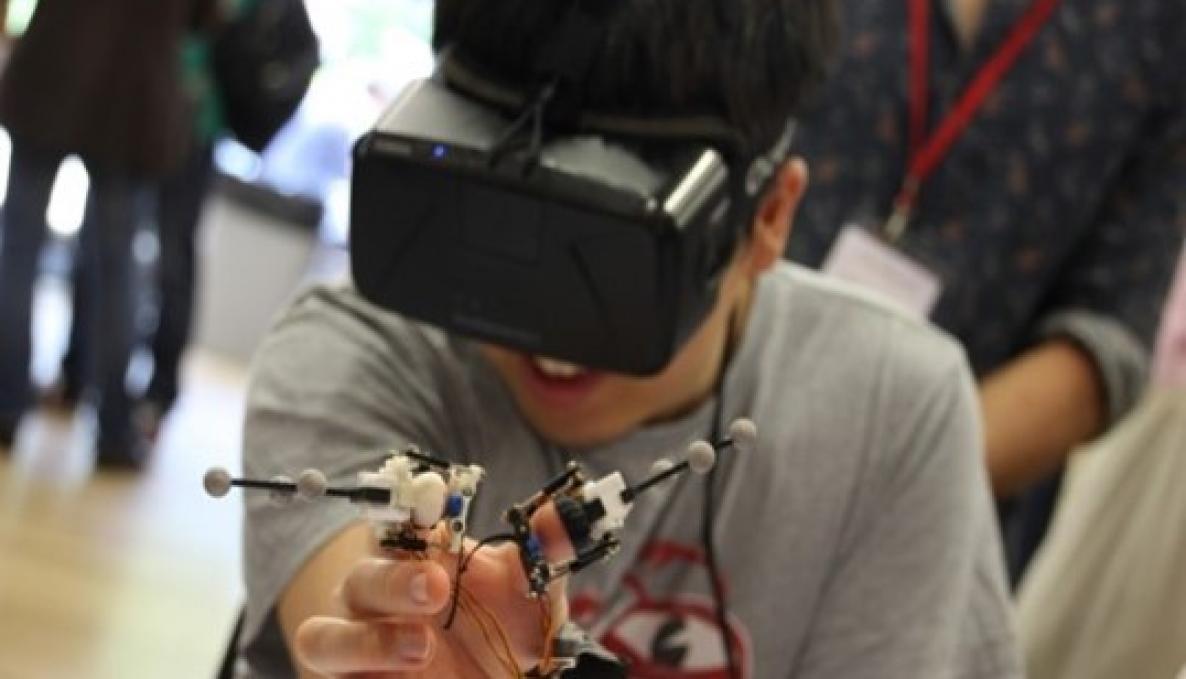IMMERSIVE VIRTUAL REALITY SERIOUS GAMES FOR PEDIATRIC NEUROREHABILITATION: SANT'ANNA SCHOOL LEADS TUSCANY REGION-FUNDED PROJECT TELOS. KICK OFF MEETING TAKES PLACE ON OCTOBER 15,2020

The kick off meeting of the “TELOS - Tailored neurorehabilitation thErapy via multi-domain data anaLytics and adaptive seriOus games for children with cerebral palSy” Tuscany Region-funded project under the Bando Salute 2018 initiative is scheduled on October 15, 2020. Started on 15 September 2020, TELOS is run in partnership with the Istituto di Fisiologia Clinica del Consiglio Nazionale delle Ricerche, the Azienda Ospedaliero-Universitaria Pisana, the Azienda Usl Toscana nord ovest and the Istituto IRCCS De Bellis. This 30-month project is led by Daniele Leonardis, a researcher in the Human Robot Interaction area at the TeCIP Institute (Communication, Information and Perception Technologies), and aims at improving treatment for cerebral palsy in engaging children in therapy and providing intervention environments that can be adapted to individual needs.
Neuromotor impairments in children may occur during pregnancy, birth or early childhood. Comprehensive treatments, correcting disabilities may involve medications, physical therapy, surgery, and vary greatly based on the individual. Digital technologies have shown promise in the treatment of disability. They allow a new route to engagement of children in therapy providing them with access to intervention environments that can easily be adapted to individual needs. In contrast to adults, the plasticity of the developing brain is thought to facilitate recovery. Therefore, the research community and the game industry have moved towards the development of models of rehabilitation in the shape of elaborated games, incorporating rehabilitative, pedagogical and entertaining elements, the so-called Serious Games (SG). However, standardized procedures are needed to translate SG into clinical practice in order to assess therapeutic strategies in appropriately well-designed pilot trials. The research team designed a new Virtual Reality-assisted Rehabilitation combining immersive Virtual Environments and weaRable hAptic devices (VERA) to improve the upper limb movements of children with neuromotor impairments. A proof-of-concept study and a Randomized Controlled Trial (RCT) have assessed the role and the efficacy of such technology for rehabilitation training with respect to traditional approach in a standard clinical setting. Findings suggest that immersive VE and wearable haptic devices may be effective for improving upper extremity motor functions in children. These interventions can be effectively improved by ambulatory and home-care strategies, promoting patient empowerment. Virtual reality and serious games offer the valuable opportunity to tailor the therapy to patients’ need, and at the same time to continuously monitor and analyse patient’s metrics to effectively adapt the therapy to her/his needs.
TELOS will aim at developing new rehabilitation methods and tools, including a fully immersive Virtual Reality (VR) system with haptic feedback, in the form of adaptable Serious Games, to perform and monitor a personalized and engaging rehabilitation treatment. In addition, cutting-edge data analytics and data monitoring systems that integrate and correlate both physiological and instrumental data will provide a statistical map of the interconnection of the various processes underlying the background of a subject. A new approach targeted to a specific disorder would bring researchers to apply the European standards for safety and efficacy to the intervention through continuous monitoring of children’s metrics whom the disease substrate is significantly different.
Daniele Leonardis is Assistant Professor in the Human-Robot Interaction area of the TeCIP Institute PERCRO Perceptual Robotics Lab. led by Antonio Frisoli, professor of in Engineering Mechanics and Robotics.
His research activity involves design and development of wearable haptic devices to render the sense of touch in teleoperation, virtual environments, and neuro-rehabilitation.
In the neuro-rehabilitation scenario, he is also involved in development of human-machine-interfaces using bio-signals to modulate assistance robotic exoskeletons.
His latest research interests, stemmed from projects in the haptic feedback and teleoperation, deal with assistive devices for blind people and with remote teleoperation and inspection applied to disaster response and industrial fields.



